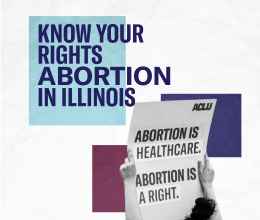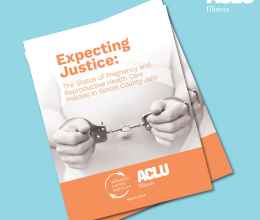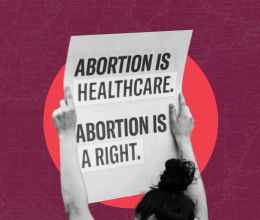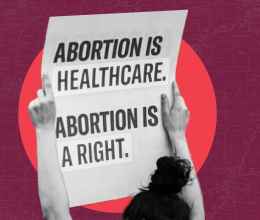The Illinois Attorney General is appealing a decision by a judge this week that Illinois pharmacists can't be forced to dispense emergency contraception, according to a Chicago Tribune article.
"We are disappointed by the Court’s ruling permitting not only individual pharmacists, but also commercial pharmacies, to refuse to provide FDA approved medications, including contraception," said Colleen Connell, ACLU of Illinois Executive Director.
"The Court’s ruling fails to account for the important constitutional rights at issue when women are denied access to reproductive health care and medication. It also allows individual religious views to dictate the kind of medication available to the citizens of Illinois in commercial pharmacies. We are grateful that the Illinois Attorney General is considering an appeal and look forward to the opportunity to participate in that process."
Pharmacists Luke VanderBleek and Glenn Kosirog and the three drug stores they operate sued over the 2005 rule imposed by then-Gov. Rod Blagojevich. A circuit court originally dismissed the claim, but the state Supreme Court ruled in 2008 that a court must hear it.
Plan B emergency contraception contains a high dose of birth control pills and can be used to prevent pregnancy if taken within three days of unprotected sex by blocking ovulation or fertilization. Critics of the contraceptive say it is the equivalent of an abortion pill because it can prevent a fertilized egg from attaching to the uterus. The pharmacists object to dispensing the pill on religious grounds.
In January 2008, the ACLU of Illinois filed an amicus brief urging the court to reject plaintiffs’ challenge to the rule. We argued that plaintiffs’ expansive reading of the Health Care Right of Conscience Act as providing absolute protection for the conscience objections of health care workers, despite the impact such refusals would have on women seeking to access constitutionally-protected health care, was incorrect and inappropriate. In December 2008, the Illinois Supreme Court ruled that the claims were ripe and, without reaching the merits of the case, sent the matter back to the circuit court for further litigation.
According to the Tribune article, after a nearly six-year struggle, Sangamon County Circuit Judge John Belz said requiring pharmacists to sell the so-called morning-after pill violates state right-of-conscience law and the First Amendment.
Call 1-855-435-7693
ICIRR hotline to report ICE activity in your community





